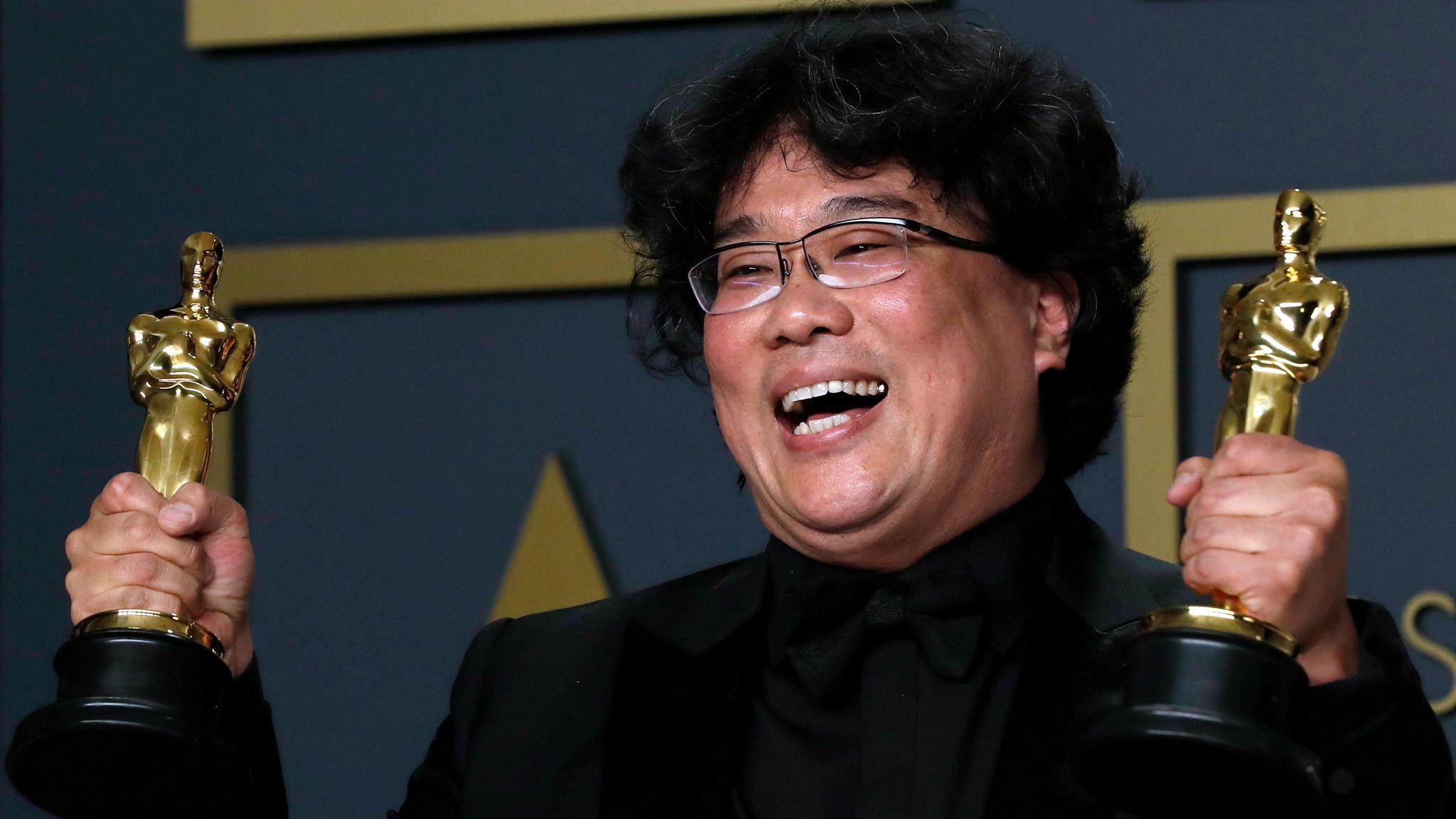Minari: Oscar favourite sees Korean family chase the American Dream
- Published
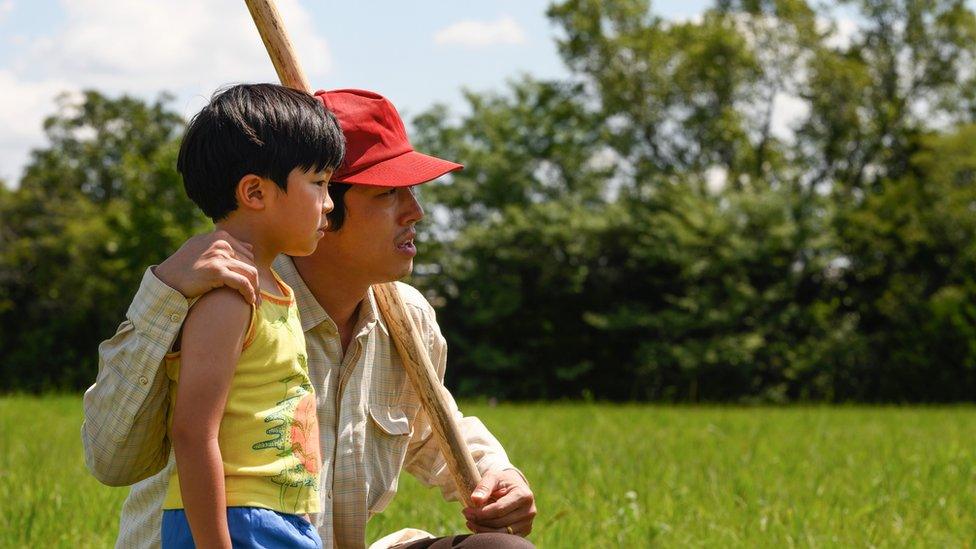
Minari has been warmly welcomed by critics and is an awards season favourite
Parasite, last year's Oscar winner from South Korea, dented assumptions that English-speaking audiences are wary of any film with subtitles. Now another Korean-language film is making waves. Minari is a very different story set in rural America. But there's buzz about its chances in April's Academy Awards.
Minari is Lee Isaac Chung's fourth feature film. For the first time, he's tried to capture on screen the lives of South Koreans in the US.
Chung is 42 and was born into a Korean family in Denver, Colorado. While he was editing his film, he says he was very aware of the acclaim building around the dark comedy Parasite. Bong Joon-ho's film went on to win four Oscars last year, including best picture. It's taken more than $250m (£177m) at the box office.
"Obviously I wanted to see this subtitled South Korean movie everyone was talking about," he remembers. "But I decided I'd resist until Minari was edited: I didn't want it to influence me at all.
"When I finally watched Parasite, I asked myself how I could ever make anything so good. So it was both encouraging and discouraging at the same time."
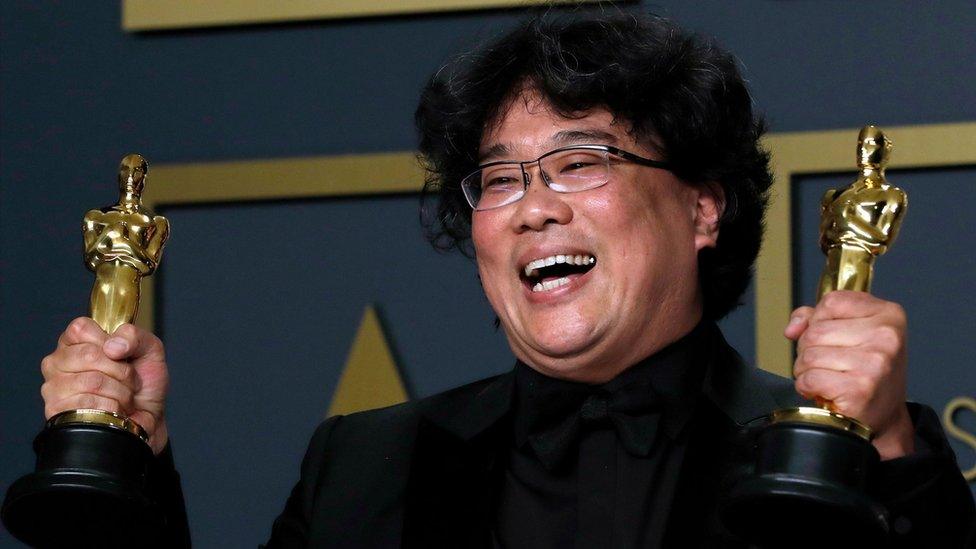
Bong Joon-ho won best director, best original screenplay and best picture for Parasite at last year's Oscars
In fact, Minari has had excellent reviews since opening last year at the Sundance festival. Vanity Fair's Richard Lawson said, external the film "is one of the highlights of the season". Robbie Collin of The Telegraph described it, external as a "finely-observed portrait of family relations and rural American values".
Minari's warm story of the Yi family moving in the 1980s from California to Arkansas is utterly unlike Parasite's sharp social satire.
The father, Jacob, plans a better living for his wife and two young children farming Korean vegetables and selling them to wholesalers and restaurants. His wife Monica is less convinced and eventually they bring her eccentric mother over from South Korea to help look after the farm and the children.
It's an engaging and at times moving blend of family drama and comedy. There are moments when it seems tragedy may strike... so will Jacob's faith in the American Dream prove misplaced?
A lot of detail came from Chung's own family background.
"We lived on a farm and our grandmother was with us. As in the film, it was her decision to grow minari down by a stream - a vegetable you'll find in many Asian countries. The truth is, when I was five or six, I really didn't like eating it but it's a hardy crop which can flourish where other things won't grow.
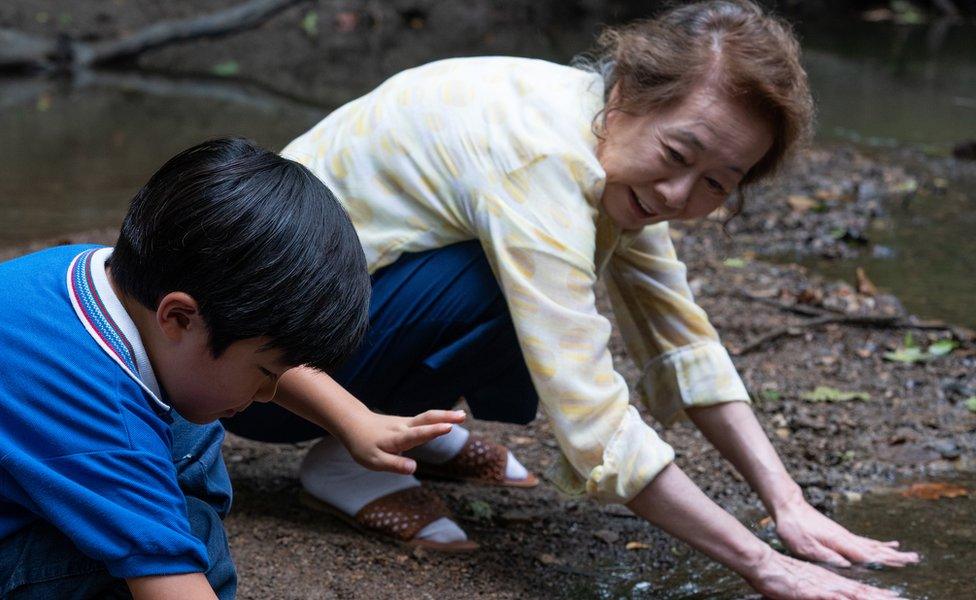
Chung said a lot of the detail in the film came from his own family background
"So although mainly I associate minari with my love for my grandmother and her wisdom, there's maybe also a metaphor about thriving in a new home.
"The process of writing the film made me understand my father a lot better and the stresses he was working through at the time I was growing up."
Chung graduated with a biology degree and had planned to become a doctor. But in his final year at Yale he decided to become a film-maker.
"My parents were very surprised and worried for me and my welfare. They thought I was making a huge mistake after college but within a few years they'd become more supportive of what I was doing. But I had such a visceral need to make films that ultimately the important thing was not if they approved. I knew I just had to do it."
Minari looks great on screen. Like another of this year's leading Oscar contenders, Nomadland, it draws strength and beauty from the landscape of America.
Chung says Hollywood films which influenced him included John Ford's The Grapes of Wrath (1940) and movies of the 1950s and early '60s from the likes of Elia Kazan, William Wyler and George Stevens.
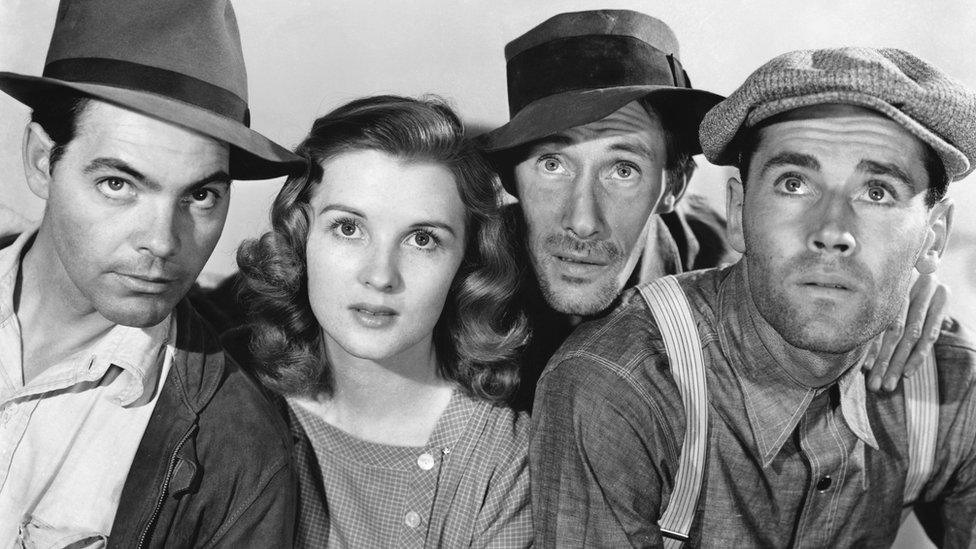
Chung says he was influenced by films such as John Ford's The Grapes of Wrath
"Those directors made films about the land and about exploring frontiers and working out your hopes and dreams in America."
He and the producers discussed trying to emulate the CinemaScope look of some of those movies. But they decided it wouldn't work, as too many scenes were to be shot in the family's small trailer home.
The dialogue is mainly in Korean and, while making it, Chung could never have guessed how successful Parasite was about to become. So did he ever consider making more of the film in English to dodge the subtitling issue?
He says there was always a second version of the screenplay standing by, just in case, and mainly in English. "Honestly that was for if I just couldn't get financing for a Korean-language film set in Arkansas. I did have those thoughts.
"But it's better to remain true to the movie and to people's lives. In most Korean-American families at that time people would definitely have spoken Korean at home."
The crucial moment came when the production company Plan B (co-owned by Brad Pitt) entered the scene. "They were all great and from the beginning Plan B just said go ahead make the movie as you see it. The producer there Christina Oh is also Korean American and she really fought to ensure we had the ability to shoot in Korean."
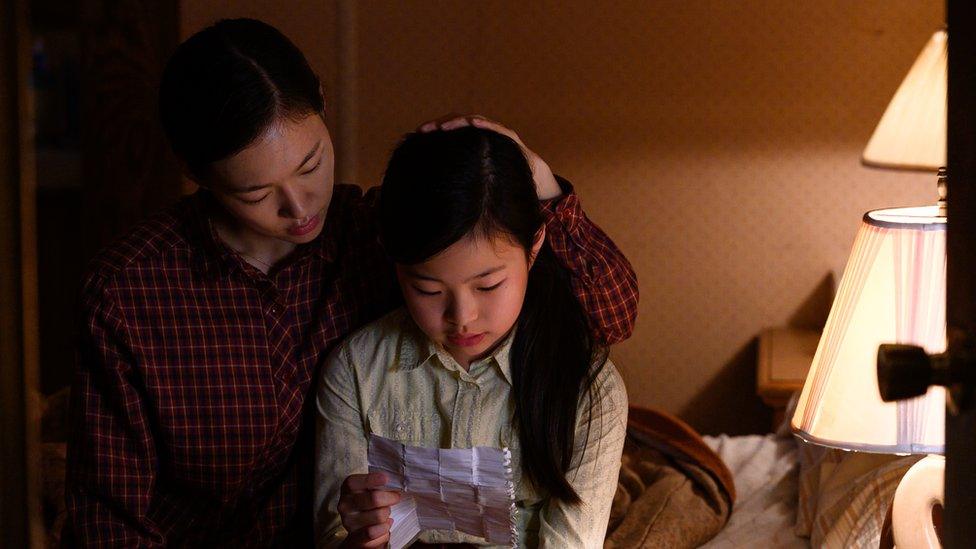
Minari is nominated for best foreign language film at this Sunday's Golden Globe Awards
There's been criticism that this year's Golden Globes wouldn't consider Minari in the best drama film category because the dialogue isn't primarily in English. The film was nominated for best foreign language film.
Chung won't be drawn into the specifics of the debate. "But what would happen, for instance, if someone made a film set in the US and it was mainly in Native American languages? Would that count at the Globes as a foreign film?"
The Globes take place this Sunday. The Academy Awards have no equivalent restriction. Oscar nominations will be announced on 15 March.
Suddenly Chung is hot property in Hollywood.
His next film is to be a love story set between America and Hong Kong. Does he think the way different races and traditions and cultures negotiate their differences and explore a common past will become a staple of post-pandemic cinema?
"I admire the writers and thinkers who feel like you can't really go forward unless you're also going backwards at the same time.
"You can't move into the future without contending with what's happened before. You have to make sure we unearth every part of history if you really really want to become something better in the future. That's a process we have to be faithful towards - to mine that history and set things right."

Minari is released in the UK and Ireland on 19 March by Altitude Film, external.
- Published10 February 2020
